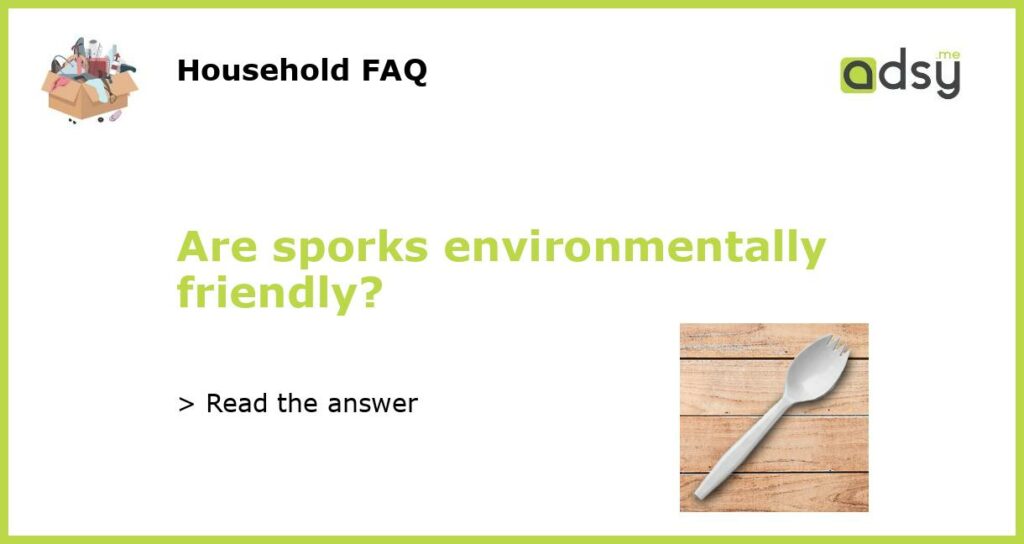What are sporks?
Sporks are hybrid utensils that combine the features of a spoon and a fork. They have a spoon-like shape with tines on one end, making them a versatile tool for eating various types of food. Sporks are commonly made of plastic, but they can also be found in metal or compostable materials.
The environmental impact of plastic sporks
Plastic sporks have become popular in fast food restaurants, schools, and outdoor settings due to their convenience and cost-effectiveness. However, they also contribute to the growing problem of plastic waste and its impact on the environment.
Plastic sporks are usually made from polypropylene, a type of plastic that can take hundreds of years to decompose. When these sporks are discarded, they often end up in landfills or the ocean, where they can harm marine life and contribute to the pollution of our ecosystems.
In addition to their long decomposition time, plastic sporks are also manufactured using fossil fuels, contributing to greenhouse gas emissions and climate change.
The benefits of metal sporks
As an alternative to plastic sporks, metal sporks offer a more environmentally-friendly option. They are typically made from stainless steel, which is a durable material that can be reused for many years. Stainless steel is also recyclable, meaning that it can be melted down and used to create new products, reducing the need for virgin materials.
Metal sporks are not only more sustainable, but they also tend to be more functional and long-lasting than their plastic counterparts. They can withstand high temperatures and are less likely to break or warp over time.
Switching to metal sporks can reduce the demand for plastic utensils and decrease the amount of plastic waste that ends up in landfills and oceans. Additionally, metal sporks can be a cost-effective option in the long run since they do not need to be replaced as frequently as plastic ones.
Exploring compostable sporks
Compostable sporks are another eco-friendly alternative to plastic ones. These sporks are made from materials such as cornstarch or bioplastics, which can break down into organic matter when composted under the right conditions.
Compostable sporks provide a more sustainable option for disposable utensils, as they do not contribute to long-lasting plastic waste. When composted, they can turn into nutrient-rich soil, benefiting plants and the environment.
However, it is important to note that compostable sporks require proper composting infrastructure to decompose effectively. If they end up in a landfill, where conditions for decomposition are unfavorable, they may not break down as intended.
Making conscious choices for a greener future
When considering the environmental impact of sporks, it is clear that plastic sporks are not environmentally friendly due to their long decomposition time and contribution to plastic waste.
Choosing metal sporks or compostable sporks can be a more sustainable option, as they offer durability and the potential for reuse or organic decomposition.
By making conscious choices in our daily lives, such as opting for environmentally-friendly utensils like metal or compostable sporks, we can contribute to a greener future and reduce our impact on the planet.






